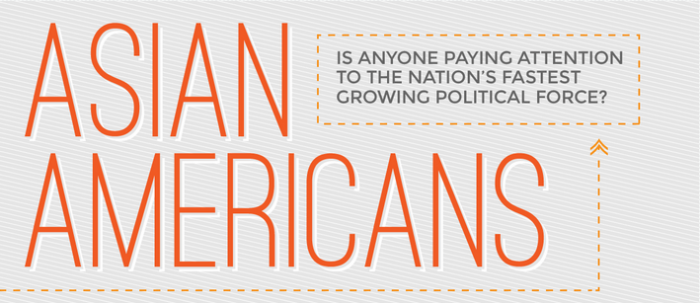by REERA YOO
According to a survey conducted by AAPI Data, Asian Americans voters are planning to turn out for the upcoming November midterms, and since most of them do not affiliate with a political party, they are now being seen as a promising political force.
Asian Americans Advancing Justice (AAJC) and Asian Pacific Islander American Vote (APIAVote) recently released the results of the survey, which polled 1,300 Asian American registered voters nationwide, and found that at least 60 percent of registered Asian American voters are planning to vote in the upcoming 2014 midterms.
Compared to the 37 percent of Asian American voters who are Democrat and 17 percent who are Republican, 46 percent were identified to be unaffiliated with a political party, making Asian Americans votes a prime target audience for future political candidates.
“Asian Americans should no longer be an afterthought in our political process,” said Mee Moua, president and executive director of AAJC.
“It is clear that Asian Americans will have a say in shaping future elections and the future direction of our country. Candidates from both sides of the aisle should be making inroads with this community, and yet, most Asian Americans have yet-to-be contacted by either political party.”
Considering the survey’s results as well as the rapid growth of Asian American population in the South and Midwest, it’s gradually becoming clear that there are enough Asian American votes to close the gap in some of the upcoming House races. Thus, many API community-based organizations across the country are launching campaigns to outreach to voters of Asian descent and advocate for policies to make the voting process easier for first-time voters with limited English proficiency.
Advancing Justice-Los Angeles, for example, is opening a 14-language phone bank this week as a part of the “Your Vote Matters” 2014 campaign and plans to use hundreds of bilingual volunteers to make phone calls providing electoral information in multiple Asian languages including Bangla, Cantonese, Hindi, Japaneese, Korean, Mandarin, and more.
In addition, the Asian American Legal Advocacy Center‘s (AALAC) has been running a campaign since July with the goal of reaching out to 10,000 Korean American voters in Gwinnett County, which has the highest concentration of Korean Americans in the state of Georgia.
“The Asian American electorate is growing rapidly and is already a significant presence in many states and Congressional districts,” said Karthick Ramakrishnan, director of AAPI Data and lead researcher on the survey. “In-language polling of Asian Americans is now getting to be critical, in order for us to have a more accurate picture of what voters care about, and how they will vote.”
Below is an infographic of the survey’s findings:








